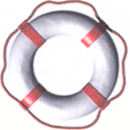How to Properly Regulate Online Poker
On April 15th, the DOJ and FBI brought down the ban-hammer to online poker in the USA.
Prohibition is a crime against personal liberty. Just because a small percentage of people cannot responsibly handle something, is no reason to ban it for everyone. In the USA, you can still buy guns, cigarettes and alcohol, despite their proven dangers. You can drive motor vehicles, even though thousands of people are killed in traffic accidents every year. Some people are addicted to shopping and rack up massive personal debt, but shopping malls and credit cards have not been banned.
It is perfectly legal to gamble away your entire life savings in the stock market, but a responsible adult cannot deposit $10 and play a card game on the internet? This is ridiculous. It’s like banning peanut butter because some people are allergic to it.
There are many arguments the prohibitionists make against online poker. I think well designed regulation can solve all of the major problems raised by those supporting prohibition. If done right, good government regulation of online poker can prevent minors from playing, prevent problem gamblers from playing, prevent fraud and money laundering, ensure the game is fair, and generate a significant revenue stream from taxation.
Many countries in Europe have started to regulate online poker. While it is good to see countries like France and Italy now regulating online poker, I think they got a few things horribly wrong. Their regulations were clearly not drafted by anyone familiar with poker. They made a lot of decisions that were a the detriment to the quality of the game, ultimately hurting their players.
The following would be my recommendations for an ideal regulatory framework that would be in the best interests of all involved (poker players, site operators, and legislators).
Regulation should start with regular third party audits by professional security teams. This is already standard practice in the industry, and is required to get gaming licenses in each jurisdiction. This ensures operators are using secure systems that are compliant with the regulation, and correctly dealing a fair and unbiased game for the customers. Operators need to have theoretically sound random number generators, collusion detection systems, bot-detection systems, and anti-fraud systems in place to properly protect their customers.
Just as you need a license to operate a vehicle, buy a gun, or go fishing, citizens wishing to play poker should have an easy way to apply for their own gaming license. To obtain a license, a citizen must verify their identity and register their social insurance number. A player must be of age to obtain a license, and the license can be revoked by the government if there is reason to believe the person is a problem-gambler. Each license can have a maximum limit on how much the player may spend per month. Appropriate spending limits can be determined based on income tax returns. A janitor making $25,000 a year can clearly be labeled a problem gambler if they were losing $1000 a month playing poker. For a lawyer making seven figures, the same amount can simply be considered as an expensive hobby and not something hazardous to oneself and family.
Operators must communicate with a government system to authorize key events such as a player making a deposit or withdraw of funds from the site. This allows the government to have control over each player’s spending limits. Movement of funds is strictly tracked this way, making fraud and laundering very difficult.
Tax can be collected through two avenues; Profitable players will pay income tax on yearly poker income. Income tax can even be automatically deducted from withdrawals, just like is done with payroll. A poker site makes all of its revenue by charging fees to deal hands and run tournaments (respectively known as rake and juice). All fees collected from a player by the operator from rake and juice can also be taxed. This tax should not be too high. France made a big mistake here and taxed the game too heavily for a lot of good players to make a profit. Taking too much money and destroys the incentive to play. Don’t kill the goose that lays golden eggs!
The biggest mistake France and Italy made is that they made their systems closed-loop. French players can only play with other French players. Italians can only play with Italians. This limits the population of players in each jurisdiction, dramatically shrinking the available game selection and prize pools. Poker is a game where you play against other players. The more, the better. Size matters a great deal in the poker ecology. Players should be able to play a global game, but their respective governments can collect tax on the revenue generated by their players.
As a Canadian poker player, I really hope my government considers these recommendations if and when they decide to draft poker legislation.







Good arguments, good reasoning.
For the readers who don’t know, it should also be pointed out that these views are coming from a very knowledgeable expert in the online poker industry. (albeit a weak-ass poker player 🙂